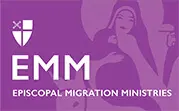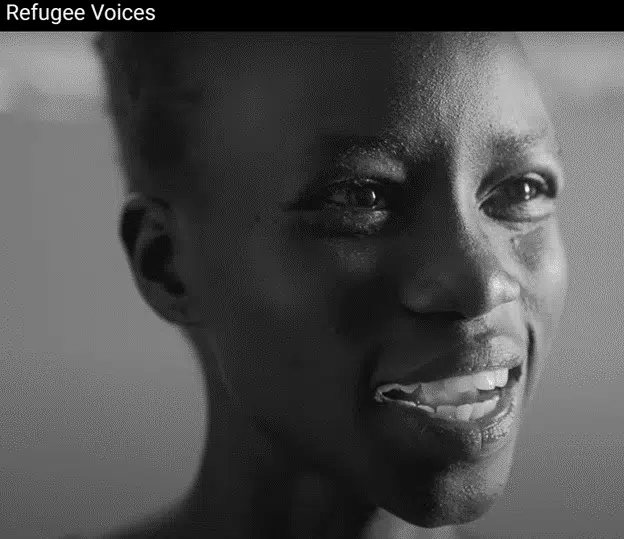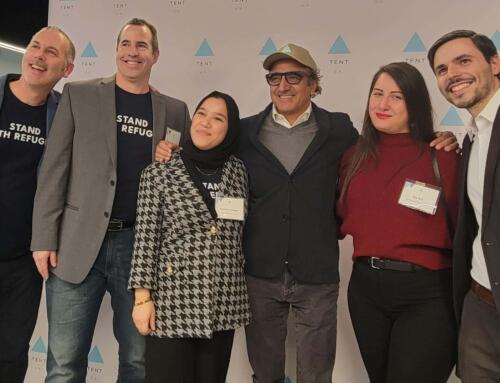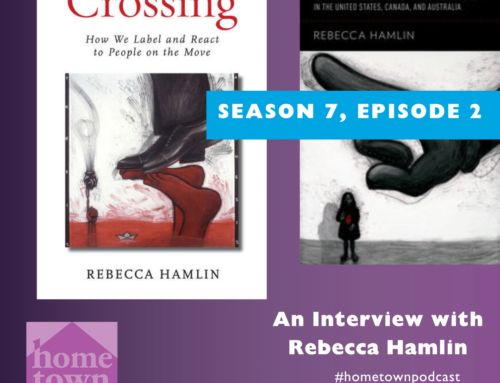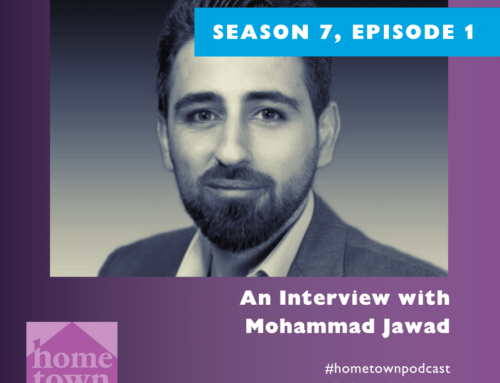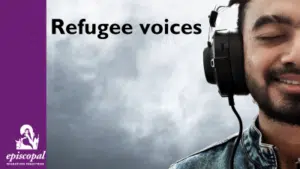
We shared the story of Salemu Alimasi, a former refugee from the Democratic Republic of Congo who now lives and works as a community organizer in Texas. We also heard the powerful words of Yalda Royan, an Afghan human rights advocate who has called for action to end the legal limbo that hundreds of thousands of Afghan evacuees in the U.S. continue to face. Their voices, along with those of others forced to flee their homes in search of safety, need to be heard and heeded, as we work together to improve our communities and our world.
Today, we turn the spotlight to a short documentary that features refugees who have forged new lives in Arizona, with support from Lutheran Social Services of the Southwest, one of EMM’s affiliate organizations.
Aptly titled “Refugee Voices,” this 16-minute film provides an opportunity to listen to five individuals from diverse backgrounds (Rwandan, Sudanese, Afghan, and Congolese). Speaking in English or other languages (subtitles provided), they describe their experiences of growing up; coming to understand endemic conflict, violence and persecution; fleeing their homes; enduring the misery of refugee camps; being selected for resettlement in the U.S., and then adapting to an entirely unfamiliar way of life. Beautifully filmed by Oscar Rivera, directed and edited by Zaskia Villa, this short documentary allows us to take in facial expressions, emotion, and tone of voice, as the five narrators share parts of their stories as well as cogent observations on the dynamics of resettlement.
As you watch and listen to their testimonies, reflect on questions they raise:
- Who are refugees? Who are they assumed to be, and how do they define themselves?
- Only 1% of the global population of forcibly displaced people is currently resettled. How does this fact impact the awareness and experience of those selected for resettlement? Given the immense need, what more can receiving countries do to expand their capacity for welcome?
- Given that many refugee individuals and families have experienced deep trauma and loss, what do they need from the people involved in their resettlement? What does a compassionate welcome on the part of professional service providers, volunteers, or neighbors entail?
Telling one’s story is never easy, especially when it involves pain, loss, and changes forced by circumstances beyond one’s control. And yet it is by telling our stories in our own words, to people who listen with open hearts, that we may find meaning in lived experiences and direction for our future.
As you take in and ponder all that these individuals share, we hope you will hear their strengths and hopes, and come away with new ideas about what you can do to create genuinely welcoming communities wherever you live.
